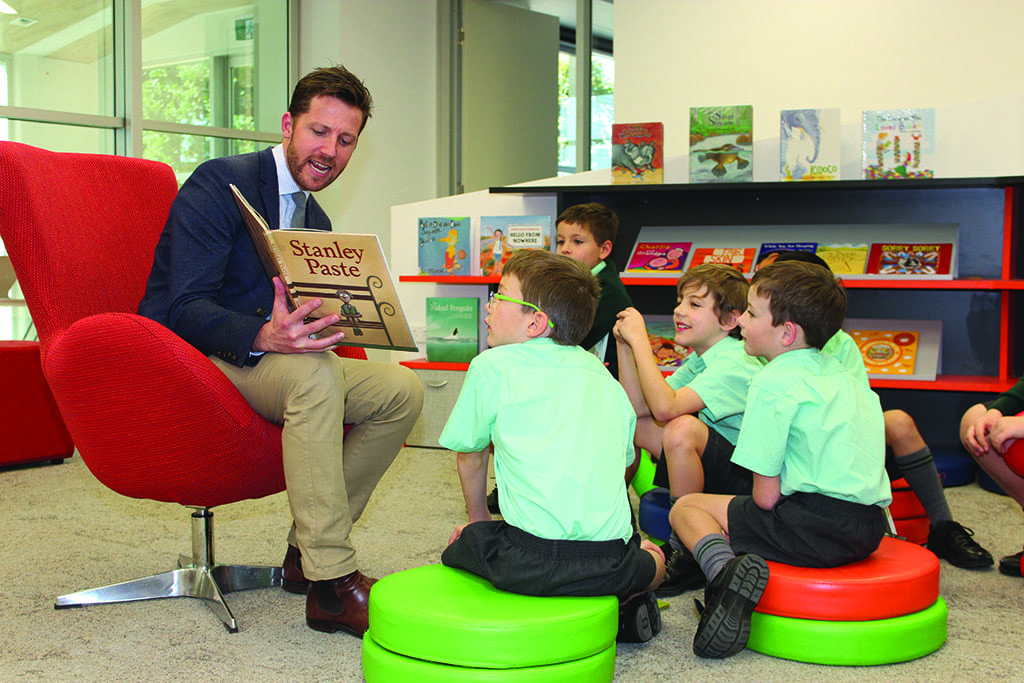There are several key issues that are usually raised in the ‘great homework debate’; however, one of the key concepts not usually addressed is the fact that “homework” is not one entity.
The definition that homework is “any work assigned by teachers for students to do in non-school time” is too simple and ignores the fact that the umbrella term of “homework” includes such things as reading for pleasure, revising, researching, practising skills (e.g. instrumental practice), completing projects/ assignments and developing independent study skills.
It also assumes that the term applies, and should apply, equally to all after – school academic endeavour, irrespective of where students are in their schooling journey from Prep to Year 12. A student leaving school after thirteen years, who has not learnt to work independently, may struggle in a tertiary study environment.
There is a growing body of educational research that demonstrates that there is a positive correlation between the completion of homework and academic success. In 2006, researchers Cooper, Robinson and Patall conducted a meta-analysis of research from 1987 to 2003 into the effect of homework on academic outcomes. From this massive analysis they concluded “With only rare exceptions, the relationship between the amount of homework students do and their achievement outcomes was found to be positive and statistically significant”.
Research overall, has also shown that there are some key factors that influence the benefits of homework. They include:
The quality of the homework task
Assigning tasks just to be seen to be setting homework is a useless exercise. Homework must be purposeful and its purpose well understood by the student. A homework task for a young child, for example, where they are asked to help mum with the grocery shopping by weighing and recording the weight of fruit and vegetables, adding up the costs of a number of items or calculating change, has a real world context and is more relevant to the child than repeating arithmetic exercises from the classroom.
For the older secondary school student, homework where additional reading around a topic is set is valid, as it allows the students to bring broader and deeper knowledge into the classroom. There is a style of teaching currently gaining in popularity known as “Flipping the Classroom”. This style of teaching turns upside down the traditional idea that the teacher teaches the concept in class and then sets exercises on the topic for homework. When the classroom is “flipped”, the student pre-reads about the topic at home and then brings this knowledge into the classroom where they complete the exercises and seek clarification of the ideas.
The time allocated to homework
One of the arguments against homework is the belief that it erodes quality family time and raises the stress levels in families. So how much time is optimal time? Cooper, referred to above, in his book The Battle Over Homework (Corwin Press, 2007) suggested that research findings support a “10-minute rule”. This “rule of thumb” suggests that daily homework should total no more than 10 minutes multiplied by the student’s grade level. Where reading is included as a homework task, the multiple increases from 10 to 15.
The discipline involved in having a set amount of time put aside for homework each night (let’s call it a study timetable) means that, as homework demands fluctuate, longer term projects, can be approached systematically and without last minute deadlines. It also means that family time can be factored in.
Appropriate involvement of parents
For younger students, reading to parents at home is not only a great way to increase their reading ability, but a time for parents to share special moments with their children. Beyond reading for pleasure, parents need to think carefully about their involvement in their children’s homework. Particularly when children find the homework challenging, it is important for them to persevere and attempt it themselves. Homework that is not challenging is not interesting. Mistakes are not a failure; they are way of shaping learning. Teachers do not set homework for parents to complete, nor do they expect parents to act as teachers. Assistance from parents in ensuring that students complete their homework and develop good study habits is always appreciated by teachers.
In conclusion, the completion of homework can have a positive impact on a student’s learning, if it is meaningful, engaging, age relevant and “owned” by the student. Effectively organised so that good study habits are formed, a student should be able to complete homework and still have time for all the other wonderful activities, including quality family time, that contribute to their busy lives.
Lois Kavanagh – Dean of Teaching and Learning at Clayfield College. Find out more about Clayfield College here.
This article was published in Issue 20 of our print magazine, February/March 2017.


homework is sh**